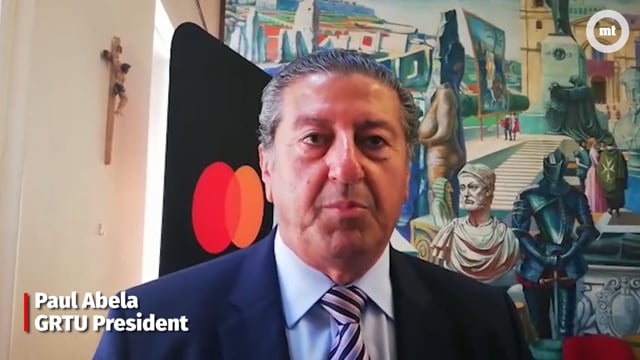[WATCH] Third of Maltese shops still do not accept card payments, study finds
Cash is still king as Mastercard study with the GRTU finds Maltese population still resisting the shift to a cashless society


A third of Maltese merchants still do not accept card payments, as Malta continues to resist the shift to cashless transactions, according to a new study.
It also found that Maltese consumers still relied heavily on cash as a means of payment, primarily for everyday expenses.
The study, commissioned by Mastercard and the GRTU – the Maltese Chamber of SMEs – and conducted by Grant Thornton, found that 40% of the Maltese’s total expenditure was affected in cash.
“Cash in Malta is really resilient. Everybody will believe that cash is cheaper but there are a lot of hidden costs related to printing cash, carrying cash and handling it,” Aspa Palimeri said.
Palimeri, Mastercard’s Country Manager in Malta, Greece and Cyprus said that there are plenty of benefits of using a card.
“We worked with many governments to combat tax evasion. Fraud is easily combatted if we can track transactions. This ability gives us good analytical data which may allow us to help merchants with their businesses.
Tourism is also a very big driver of Malta’s economy. It would be so helpful to tourists if they are able to use their credit cards,” she said.
Daniel Gravino, who presented the results, said that it was clear that a majority of merchants believed that accepting card payments “attracted customers” and “simplified operations”.
Those who refused to allow card payments cited additional costs as the reason, with 53% saying they would consider integrating new payment solutions in the near future.
“Malta is behind on electronic payments. One main reason is that sometimes profits are so low that it’s not worth paying commission to banks,” GRTU President Paul Abela said. “We are educating our members to start accepting them, especially because sales are being lost to online shopping.”
While 57% of Maltese citizens recognise that debit cards are a convenient substitute for cash, only 23% of these respondents used them for their purchase. In total, credit card payments account for just 16% and are mostly (56%) used for transactions abroad.
Significantly, 37% of respondents said they do not own a credit card, while 15% do not own a debit card.
There also seems to be a resistance to obtaining a card by people who do not already own one, with 50% saying they were unlikely to get one in the near future.
Most people who owned either a credit or a debit card used them mainly for online payments, with half declaring that they made at least one online payment every 10 to 15 days.
Asked about Revolut, and the mobile payment app’s unprecedented success in Malta, Palimer said that there were plenty of lessons learnt from Revolut’s sensational influence.
“Our competitor is still ultimately cash. When other card payments competitor rear their head, we can open up the market together and learn together how to be more approachable. We welcome our competitors—Revolut has shown that when something good comes along, people are on board with it,” Palimeri said.
Abela said that evading tax and evading VAT was becoming the norm in Europe, signifying the need for card solutions.
“Cash is a costly exercise. At the end of the day, the government has to find a solution to put some sort of tariff on whoever uses cash,” he said.
Grant Thornton’s survey was based on a sample size of 550 consumers and 140 merchants.






.jpg)













.png)


